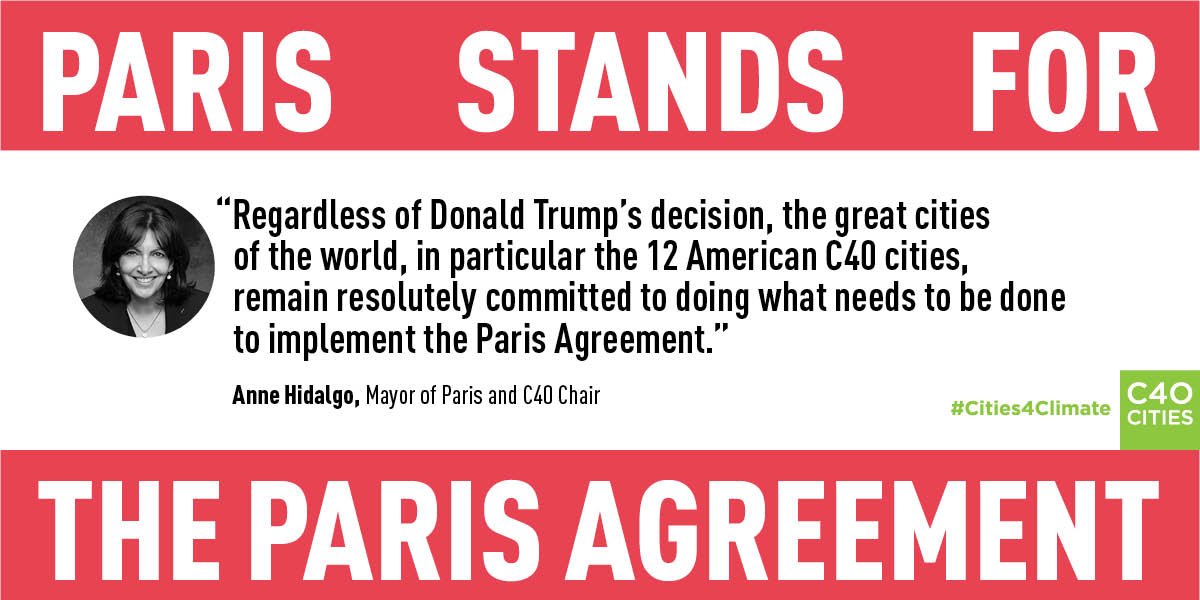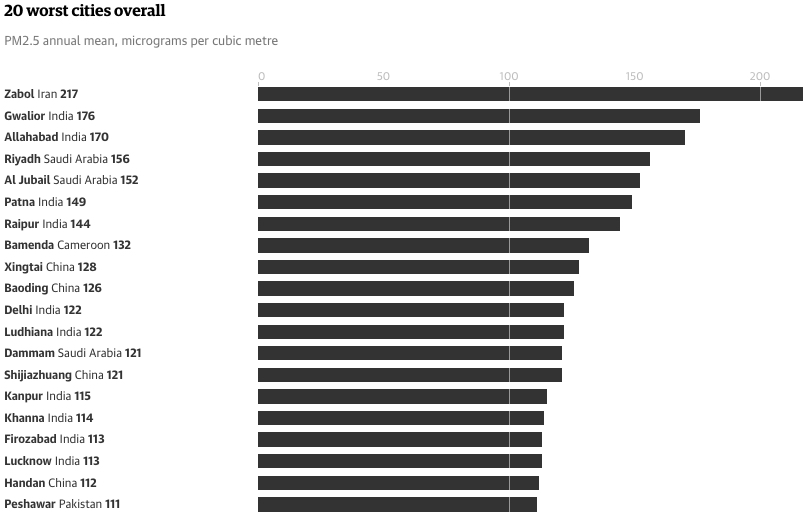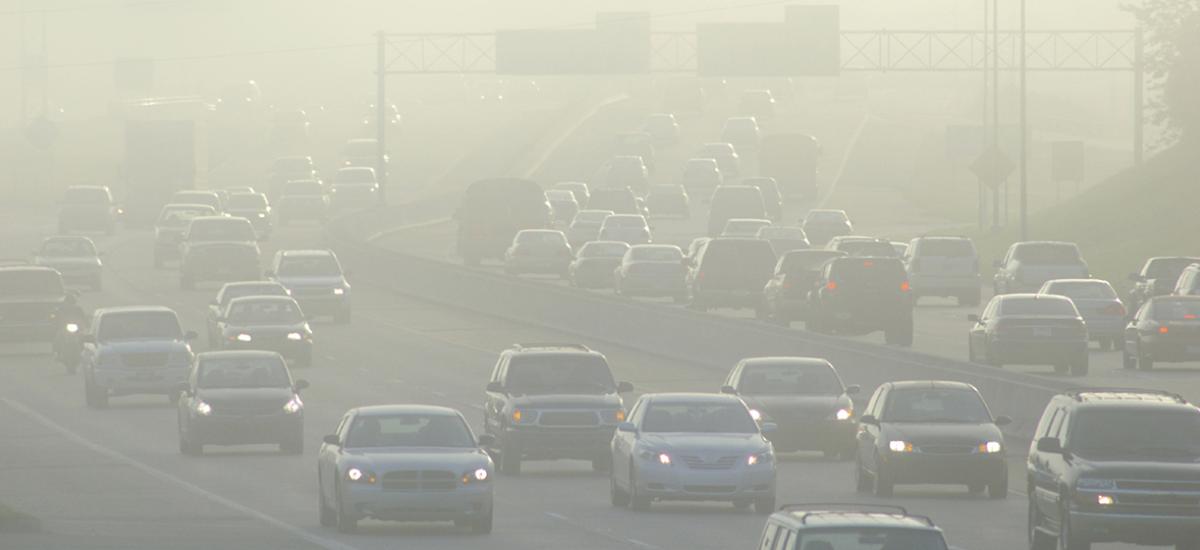At the C40 Cities Climate Summit in Paris on October 23, the mayors of several major cities such as Paris, Los Angeles and London have pledged to ban gasoline (petrol) and diesel vehicles from “large parts” of their respective cities over the next decade and a half.
Of note is the fact that Los Angeles and Seattle mayors have committed to the progressive abandonment of combustion engines even as US President Donald Trump pulls out of the Paris climate agreement. In fact, the city of Boston is on the steering committee along with Los Angeles.

Among other cities committed to the change are Auckland, Cape Town, Milan, Quito, Barcelona, Mexico City and Copenhagen.
Interestingly, the mayors of some of the most highly polluted cities (based on WHO data for particulate matter) such as New Delhi were not part of the joint commitment. Below are the top 20 worst cities in terms of air pollution:

Though there are several initiatives around the world to curb emissions from the use of internal combustion engines, the advent of electric cars is, by far, the biggest one that will drive this agenda within the automobile industry. Several of the major automakers of the world have committed to EVs. It will take decades to significantly reduce the amount of emissions from ICE cars, but things have been set into motion. As the planet increasingly faces the effects of air pollution in its largest cities, a lot is being done to reduce the impact of human civilization.
That said, however, there are still areas like power generation that need to be addressed in order to significantly reduce the amount of fossil fuels we use. The biggest source of electricity production is still coal, at a whopping 8,726 TWh generated from it in 2014. Gas is next at nearly 5,000 TWh, and renewable sources such as hydroelectric and nuclear only make up a little more than 6,100 TWh of power generated. Other sources such as solar, wind, etc. are clubbed into one grouping, and only contribute 1,520 TWh of power.
Things need to change all around, and the commitment of a handful of cities might not be a major achievement. But it’s one more firm step towards an emissions-free future.
Thanks for visiting. Please support 1redDrop on social media: Facebook | Twitter
Source: CNBC



